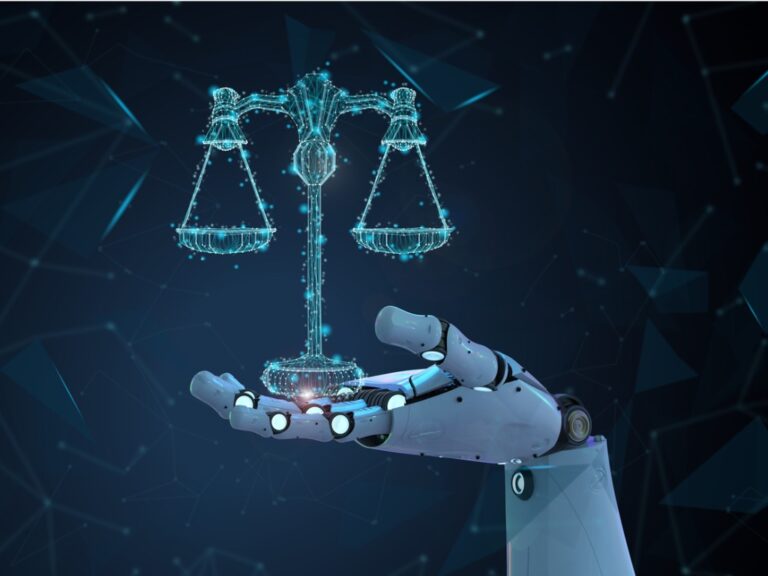Conducting a Symphony of AI Integration for Legal Ops Professionals

By Colin Levy
April 24, 2024

Colin Levy is the author of "The Legal Tech Ecosystem" and the editor of the "Handbook of Legal Tech," serving as a dedicated guide in the legal technology sector. A corporate lawyer by training, he has a passion for innovation and technology. Levy currently serves as the Director of Legal and an Evangelist for Malbek, a provider of enterprise CLM solutions. He also holds roles as both a legal tech startup advisor and investor, remaining deeply connected to the industry's advancements.
In the evolving landscape of legal practice, the integration of Generative AI (artificial intelligence) technologies stands as a transformative force. Much like a maestro conducting a symphony with precision and flair, legal operations professionals assume the pivotal role of orchestrating the complex interplay between technological advancement and legal integrity. AI integration for legal ops professionals involves a nuanced balance of ethical, legal, and technical considerations to achieve outcomes that resonate with efficiency, fairness, and innovation.
Let’s look at how generative AI is reinventing legal practices, focusing on specific use cases that illustrate its potential. Then we can discuss the key areas legal operations professionals must master to effectively integrate AI, ensuring a harmonious symphony of legal practice and technological innovation.
The Role of Generative AI in Reinventing Legal Practices
Generative AI, with its vast capabilities, is set to redefine the essence of legal work. From automating mundane tasks to facilitating complex decision-making, AI technologies promise to elevate the practice of law to unprecedented heights. The following use cases demonstrate how AI can be a powerful instrument in the legal operations orchestra:
- Reimagining Document Management and Creation: Generative AI significantly streamlines document management and creation, a boon for legal operations. AI-driven contract generation tools can customize contracts based on specific inputs, ensuring accuracy and compliance while saving valuable time. Similarly, the creation of legal templates for non-disclosure agreements (NDAs), terms of service, and privacy policies becomes a matter of a few clicks, tailored to meet the diverse needs of clients across jurisdictions.
- Enhancing Legal Research and Due Diligence: The application of AI in legal research transforms the tedious process of sifting through case laws and precedents into an efficient, automated task. AI tools can quickly generate summaries and identify applicable legal principles, offering a strategic edge in legal proceedings. Furthermore, in the context of mergers and acquisitions, AI-driven due diligence tools can scrutinize vast document repositories to flag potential legal issues, facilitating informed decision-making.
- Innovating in Litigation and Dispute Resolution: In litigation, AI’s role extends to drafting legal briefs and generating arguments or defenses, harnessing vast legal databases to craft compelling narratives. Additionally, AI technologies can analyze evidence, organizing and summarizing large data sets to unveil relevant patterns or insights, thereby enhancing the litigation strategy.
- Streamlining Compliance and Risk Management: AI tools are invaluable in generating regulatory compliance documents and updating policy manuals to reflect current laws, thereby simplifying compliance management. These technologies enable legal professionals to proactively manage risks by ensuring that all operations adhere to the latest regulatory standards.
- Fostering Client and Internal Communication: Generative AI facilitates the creation of client advisories, legal updates, and alerts on recent developments, customized according to the client’s industry and interests. It also aids in developing internal knowledge repositories, making essential information accessible and understandable for all team members.
As the potential of generative AI in reinventing legal practices becomes increasingly apparent, the role of legal operations professionals in orchestrating this integration becomes all the more crucial.
The Role of Legal Operations Professionals in Conducting the AI Symphony
Legal operations professionals are the conductors of the AI symphony, ensuring that the integration of AI technologies remains in harmony with legal, ethical, and operational considerations. To effectively lead this transformative journey, they must master the following areas:
- Acquire Technical Expertise: Understanding AI’s essential algorithmic underpinnings is crucial for managing and supervising AI applications effectively. This involves engaging with educational resources, experts, and hands-on projects to demystify AI technologies.
- Stay Informed on Regulations: Keeping abreast of evolving AI regulations ensures that legal practices remain compliant and ethically sound. This requires continuous learning and networking within legal and AI communities.
- Implement Robust Data Management: Given AI’s reliance on data, legal operations must prioritize secure, ethical data practices, from collection to deletion, safeguarding against breaches and ensuring privacy.
- Protect Intellectual Property: Navigating the IP challenges posed by AI, from copyright issues to patentability questions, requires a nuanced understanding of both legal and technological domains.
By mastering these areas, legal operations professionals can confidently lead their organizations through the complexities of AI integration, ensuring that the symphony of legal practice and technological innovation plays on harmoniously. Just as a skilled conductor brings out the best in each musician, legal operations professionals must coordinate the various elements of AI integration to create a cohesive and impactful performance.
The future of legal operations, empowered by generative AI, promises not just enhanced efficiency and accuracy but a new paradigm of legal practice that is dynamic, innovative, and inherently adaptable. As the legal landscape continues to evolve, the role of legal operations professionals as the conductors of this AI symphony will become increasingly crucial, ensuring that the integration of technology and legal practice remains a masterpiece of innovation and integrity.
Critical intelligence for general counsel
Stay on top of the latest news, solutions and best practices by reading Daily Updates from Today's General Counsel.
Daily Updates
Sign up for our free daily newsletter for the latest news and business legal developments.


